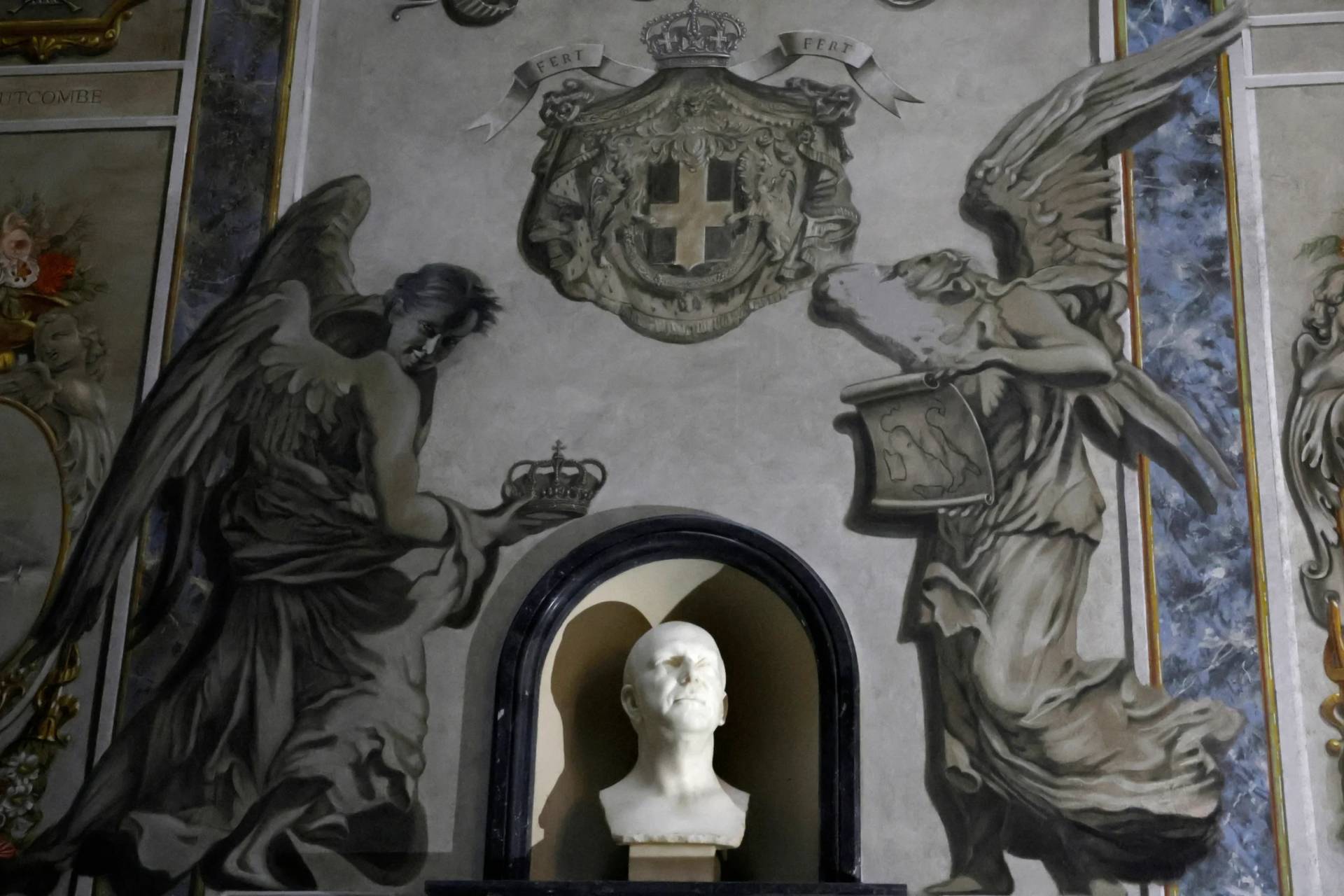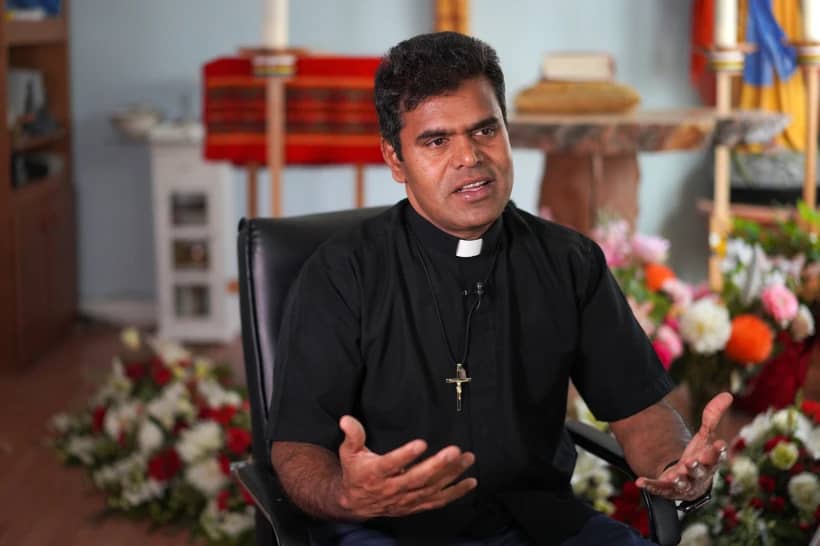SÃO PAULO, Brazil – In a harsh exchange of tweets with Brazilian theologian Leonardo Boff on Jan. 1, Brazil’s foreign minister Ernesto Araújo accused Liberation Theology of being responsible for the decline in the number of Catholics in Brazil.
In a Happy New Year tweet, minister Araújo said that “in 2020 it’s necessary to keep working against the leftist mechanism” not only in Brazil, but also on the international front, criticizing what he called “a global and globalist project of power.”
Araújo is a minister for conservative President Jair Bolsonaro, who has often sparred with the country’s Catholic bishops over the environment and other social justice issues.
A follower of the ideas of the far-right philosopher Olavo de Carvalho, a Virginia-based Brazilian author who argues that there’s a Marxist international conspiracy behind multilateralism and the studies on climate change, Araújo has at times sparked controversy in the Brazilian media. In March, for instance, he claimed during an interview that Nazism “is a left-wing phenomenon.” In September, at a conference at The Heritage Foundation in Washington D.C., he denied climate change, saying it’s an “instrument of globalism.”
His tweet on Jan. 1 was answered by one of the founders of the Liberation Theology movement in Latin America, Leonardo Boff, who said that with Araújo, “intelligence has been debased” and that his interventions “lack any kind of serious base,” being the result of an “anti-human and anti-life prejudice.”
Boff, a former Franciscan priest, is still a well-known left-wing figure in Brazil, and frequent critic of the goverment.
Araújo answered Boff with an attack on Liberation Theology.
“When your Liberation Theology appeared, more than 90 percent of Brazilians were Catholic. Today they’re only 50 percent and [they keep] going down. Brazilians – especially the poor – rejected your theo-Marxism and ran to the Evangelical churches, where they can praise Jesus Christ,” he wrote.
Araújo’s theory on the decline of Catholicism in Brazil seems to echo Carvalho’s ideas.
A frequent critic of Liberation Theology, Carvalho said in October of 2016 that “the ascension of Protestantism [in Brazil] is a collateral effect of the destruction of the Catholic Church.” In a following statement, he connected the “internal destruction of the Catholic Church by the Liberation Theology” to the “general ascension of thousands of improvised ‘Evangelical’ churches.”
The most recent census showed that the proportion of Catholics in Brazil went from 91.8 percent in 1970 to 64.6 percent in 2010. In the same period, Evangelicals grew from 5.2 percent to 22.2 percent.
According to Jung Mo Sung, a Catholic lay theologian and professor at the Methodist University of São Paulo, it’s wrong to blame Liberation Theology for this transformation of the religious landscape.
“Decades ago, 90 percent of the Brazilian people professed Catholicism because this was the cultural norm, but actual participation in the Church was very low,” he told Crux.
“In the beginning of the 1980s, when there was a boom of basic ecclesial communities [theologically nurtured by Liberation Theology], the number of people active in the Catholic Church, mainly in the [working-class] suburbs, became gigantic,” Mo Sung continued.
Basic ecclesial communities are neighborhood-based entities that meet for scripture study and other activities, including social activism. Although some existed before the Second Vatican Council, the movement took off after the 1960s in Latin America.
The number of basic ecclesial communities in poor neighborhoods and rural areas throughout the country in the 1980s reached 100,000, he explained, adding that “if it wasn’t for Liberation Theology [and its pastoral counterpart], Evangelical churches would be even bigger today.”
For Brazilian Dominican Father Carlos Alberto Libânio Christo, known as Frei [“Friar”] Betto – one of the leading figures in Liberation Theology in Brazil – the subsequent decline in the basic ecclesial communities (BECs) and in the number of Catholics is related to the increasing conservatism in the Church.
“Thirty-four years of conservative papacies – with John Paul II and Benedict XVI – demobilized the BECs and repressed Liberation Theology. The emptying of the BECs caused the migration of many low-income Catholics to Evangelical churches,” Frei Betto told Crux.
Mo Sung added that in the 1990s, BECs had grown so much that they became parishes, at times led by more conservative priests. The institutionalization of those communities ended up diminishing the influence of popular lay leaders as ministers of the Word.
“They were replaced by priests, who often didn’t master the communication with the people,” said Mo Sung.
The kind of Liberation Theology that became hegemonic in Brazil also caused a certain distance from popular Catholicism, Mo Sung added.
“In BECs, people liked to organize processions and feasts of saints. But the Brazilian Liberation Theology assumed the rational language of European thought. The ability to speak to the people was lost,” he said.
Popular Catholicism in Brazil was always a matter of solving concrete problems, continued Mo Sung.
“People traditionally prayed and made promises to saints in order to be healed or to get a job. They didn’t worry about the cosmos, but about their needs. Evangelicals entered through that door, given that the priests were not dialoguing with those elements anymore,” he said.
In the opinion of Frei Betto, clericalism became a major problem in the Brazilian social context in which Protestantism grew.
“In the Evangelical churches, the pastor is someone who lives at the slum [where the church is located]. But in the Catholic Church, the priest is someone who comes from the outside,” he explained.
Araújo’s accusation of Liberation Theology doesn’t consider another important aspect, according to João Décio Passos, a professor of religion sciences at the Pontifical Catholic University of São Paulo.
“There’s a trend of decline of religion in general in the whole world, not only in Latin America [where Liberation Theology was relevant],” he said.
In 1970, only 0.8 percent of the Brazilian population declared themselves to be non-religious. In 2010, the proportion went up to 8 percent.
“Secularization is more significant among segments of the population with more years of study and in the highest social classes, in which Liberation Theology didn’t have any influence,” Passos said. “This minister [Araújo] continues to be an ideologue that disregards facts and science.”
Crux is dedicated to smart, wired and independent reporting on the Vatican and worldwide Catholic Church. That kind of reporting doesn’t come cheap, and we need your support. You can help Crux by giving a small amount monthly, or with a onetime gift. Please remember, Crux is a for-profit organization, so contributions are not tax-deductible.















